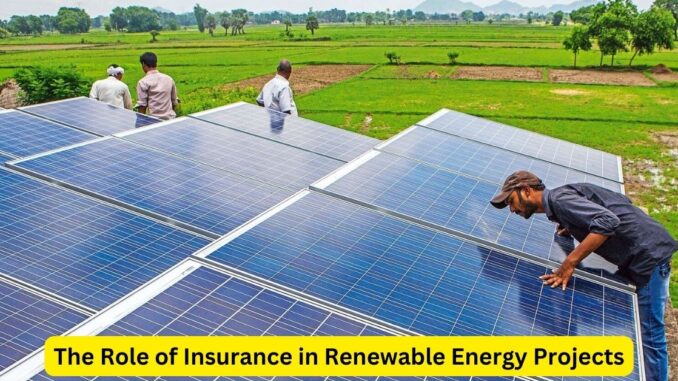
As the world embraces sustainability and seeks alternatives to traditional energy sources, the spotlight shines brightly on renewable energy projects. These initiatives, though promising, come with unique risks and challenges. Enter insurance tailored for renewable energy—an essential tool in mitigating uncertainties and powering the future of sustainable energy.
Renewable energy projects, such as solar, wind, hydroelectric, and geothermal power, play a pivotal role in combating climate change. However, the nature of these ventures involves substantial investments in sophisticated technology, geographic complexities, and long-term operational risks. Insurance specifically designed for the renewable energy sector addresses these challenges.
One of the primary risks in renewable energy projects is the vulnerability of equipment to natural elements. Solar panels, wind turbines, and hydroelectric machinery are exposed to weather-related damage, leading to significant financial implications. Insurance coverage helps mitigate losses arising from equipment breakdowns, ensuring minimal disruption and financial stability during repairs or replacements.
Furthermore, the geographic diversity of renewable energy projects introduces location-specific risks. For instance, solar farms in regions prone to hailstorms or wind farms in areas susceptible to hurricanes face unique challenges. Insurance policies consider these environmental factors, providing coverage for damage caused by extreme weather events, thus safeguarding the financial health of these projects.
In addition to physical risks, renewable energy projects encounter regulatory uncertainties. Changes in government policies, incentives, or regulations can impact the viability of these projects. Insurance solutions offer coverage against losses resulting from regulatory changes, providing a buffer against unforeseen financial setbacks.
Moreover, the long operational lifespan of renewable energy projects demands coverage for potential revenue losses. Insurance tailored for these projects includes business interruption coverage, compensating for lost income due to unforeseen disruptions, allowing project owners to continue operations and meet financial obligations.
The evolution of renewable energy technologies also introduces risks related to innovation. Insurance providers are adapting to cover emerging risks associated with novel technologies, such as energy storage systems or advancements in wind turbine design, ensuring that these innovations are protected against unforeseen liabilities.
Collaboration between insurance providers, renewable energy developers, and investors is crucial in tailoring policies that comprehensively address the evolving risks in this sector. By leveraging their expertise and understanding of the industry, insurers can offer customized solutions that align with the specific needs and risks of renewable energy projects.
In conclusion, insurance plays a pivotal role in supporting the growth and sustainability of renewable energy initiatives. By mitigating risks associated with equipment damage, environmental factors, regulatory changes, and revenue loss, specialized insurance solutions empower stakeholders in the renewable energy sector to drive innovation and foster a cleaner, more sustainable future.

Leave a Reply